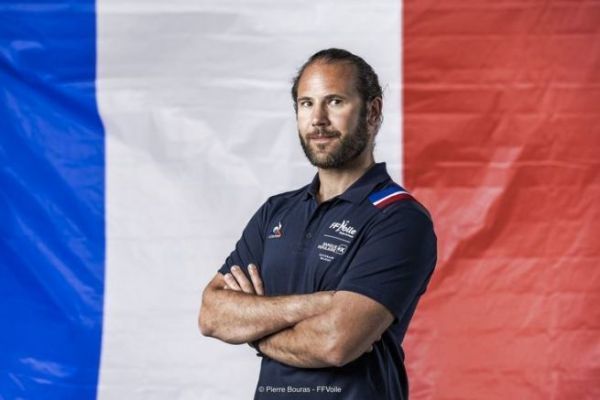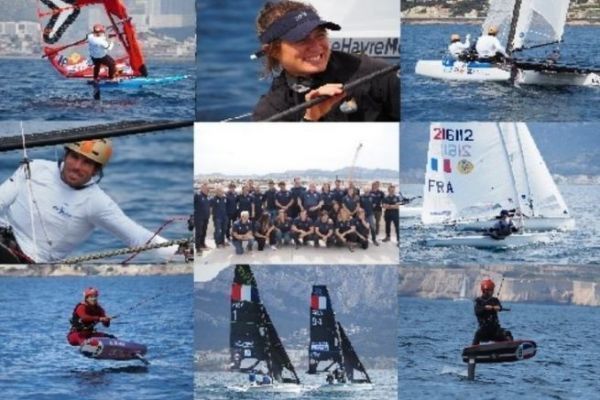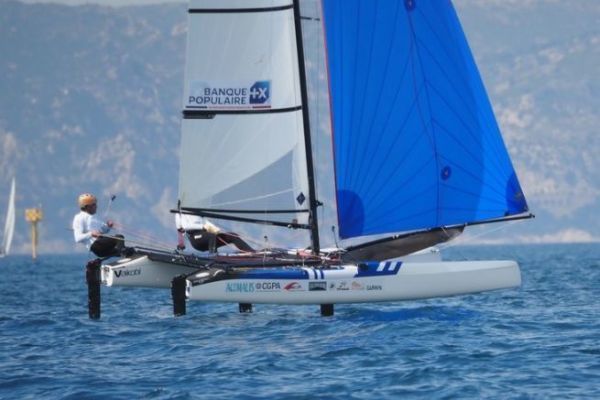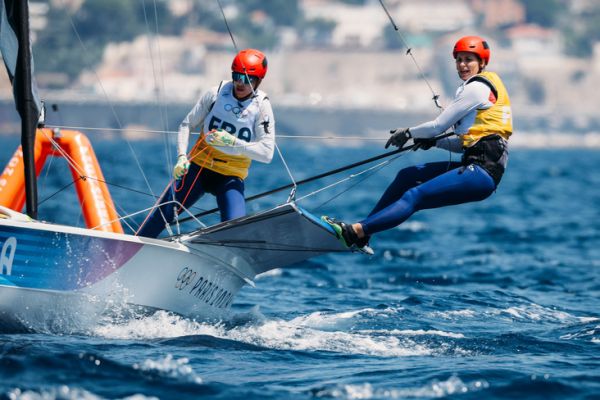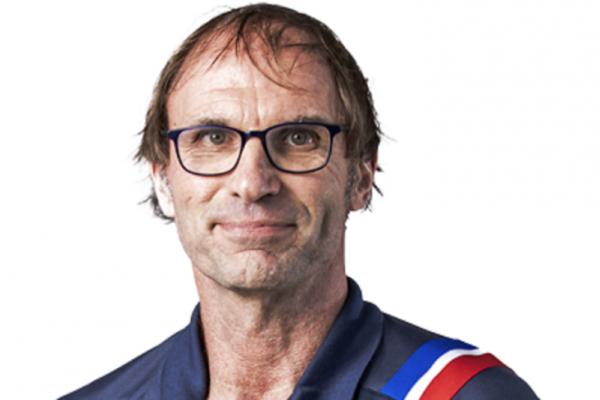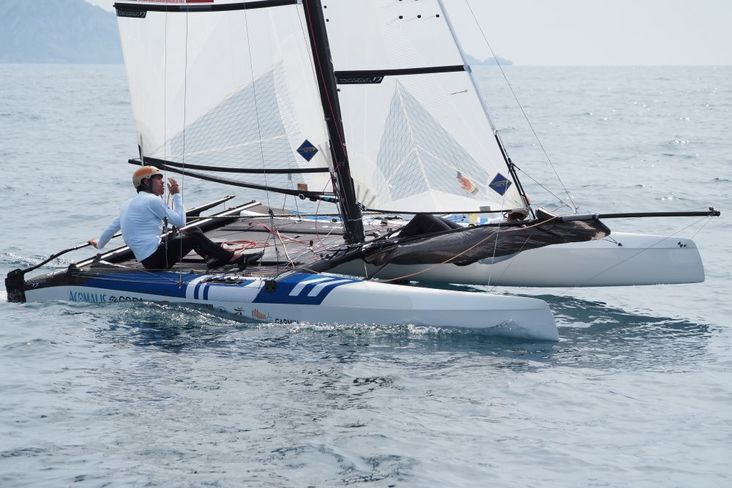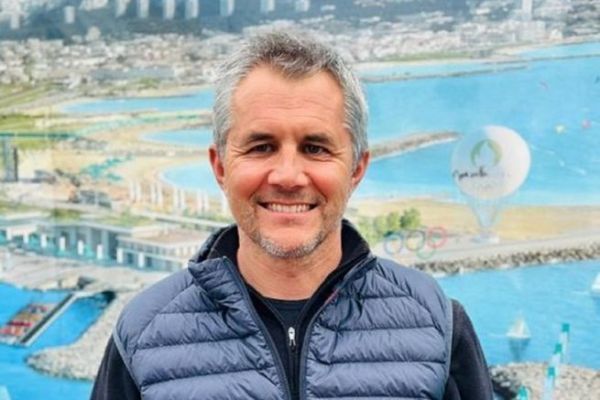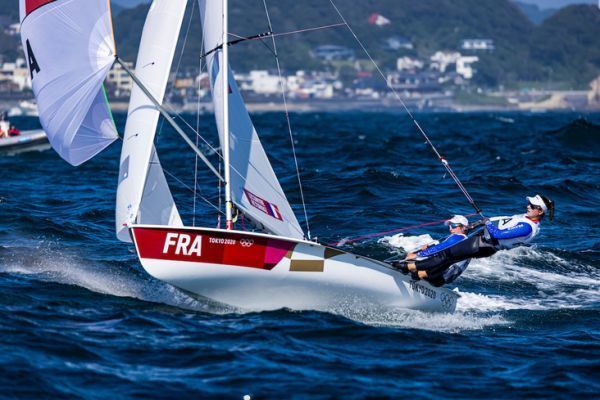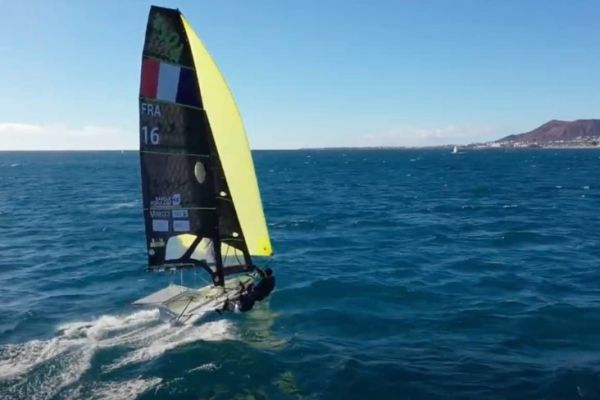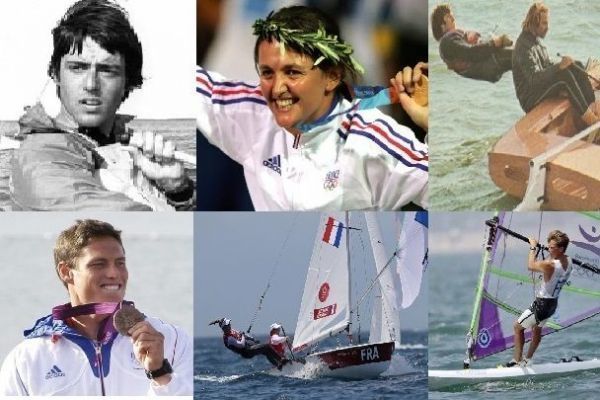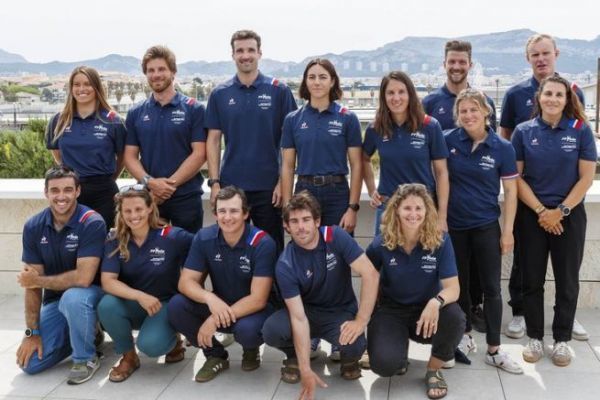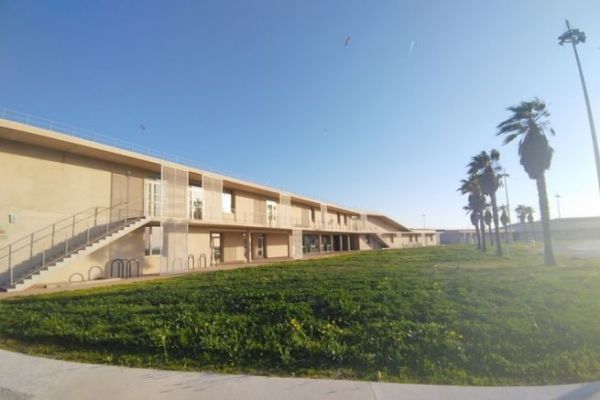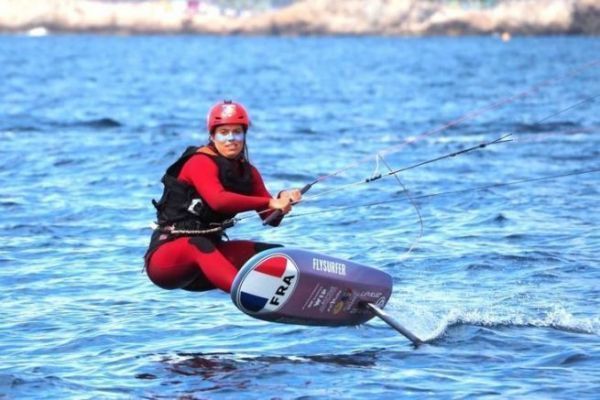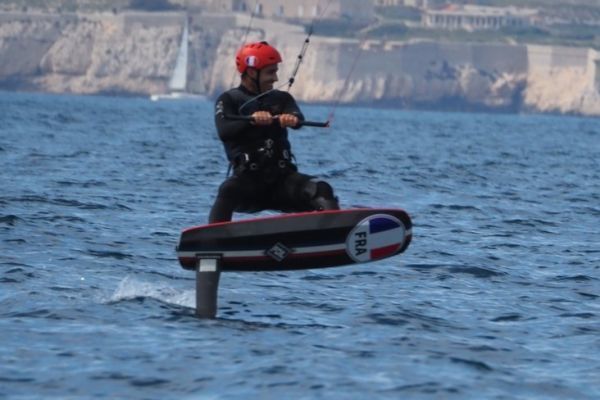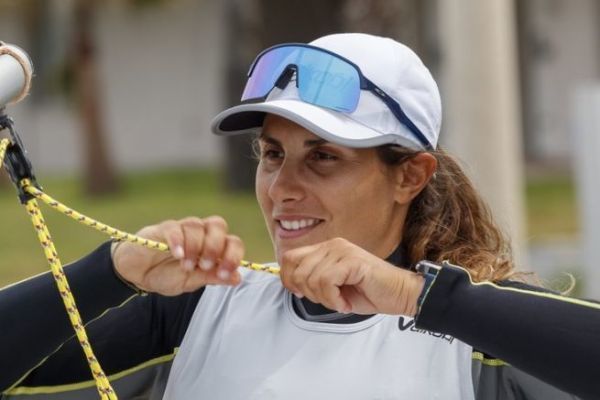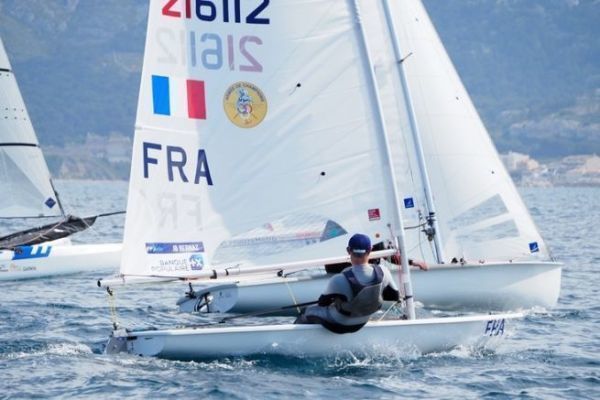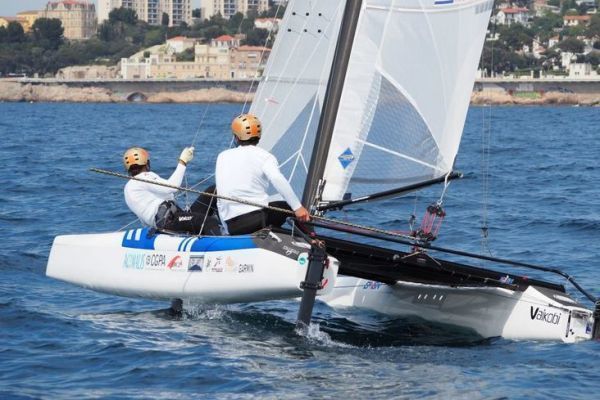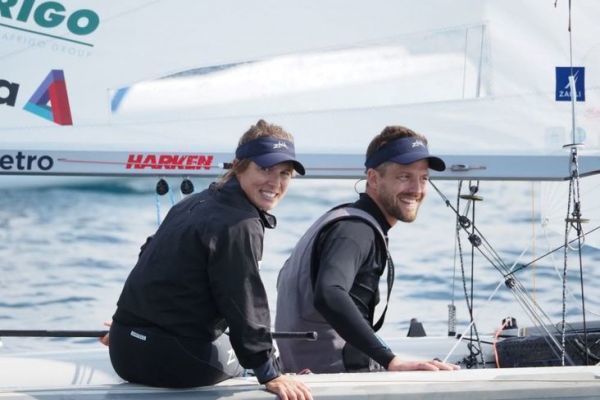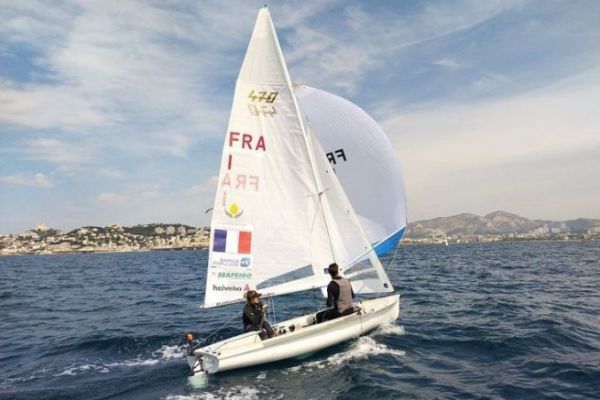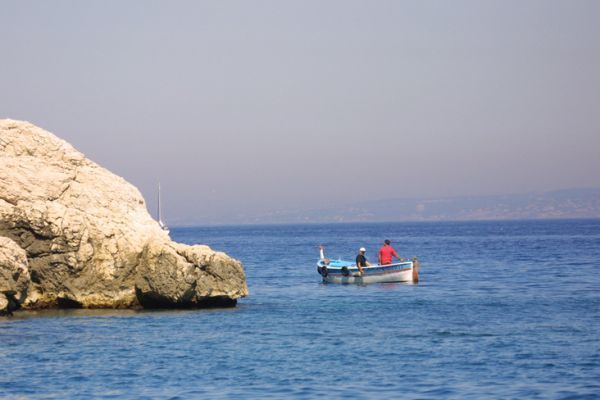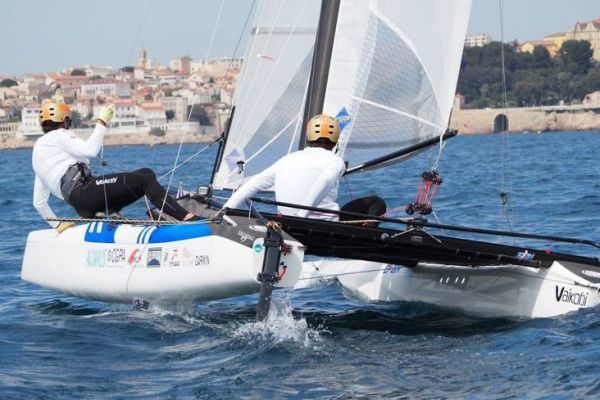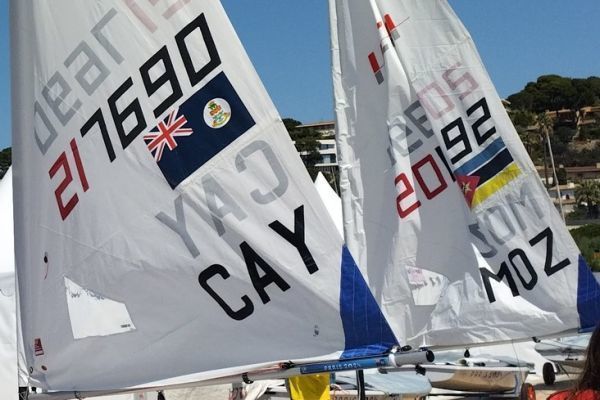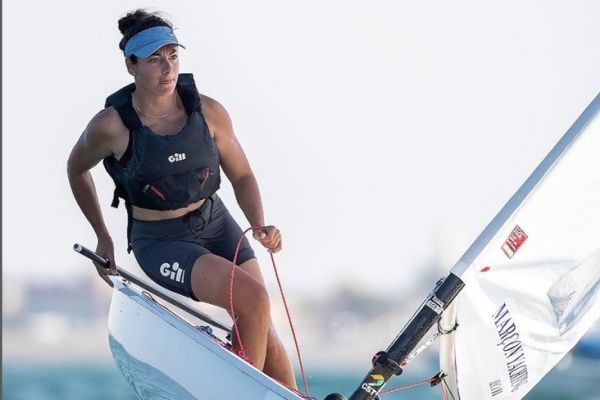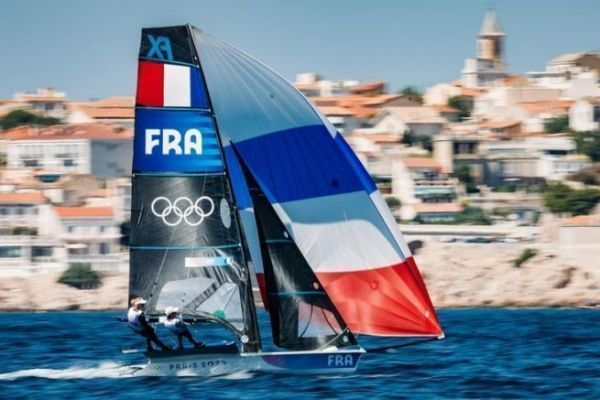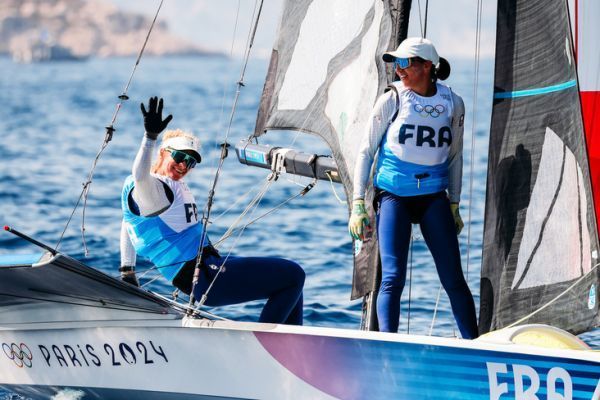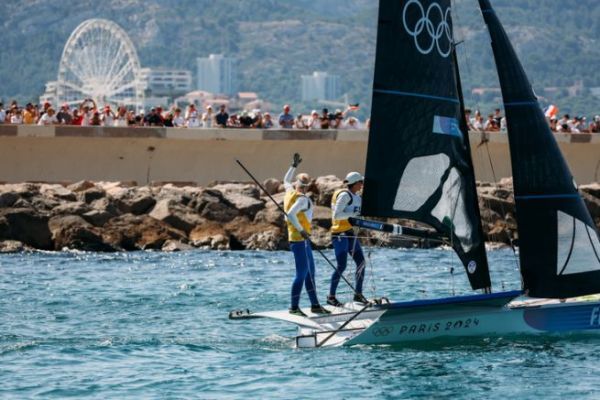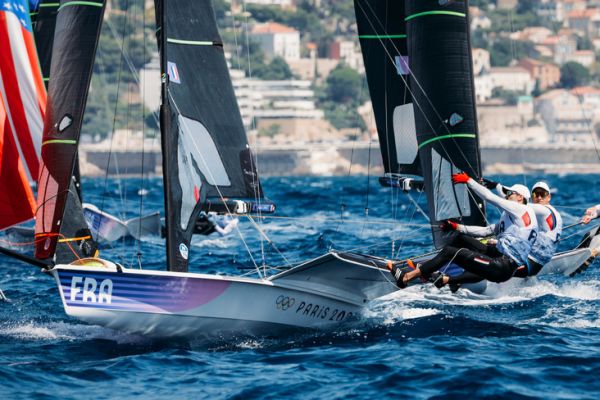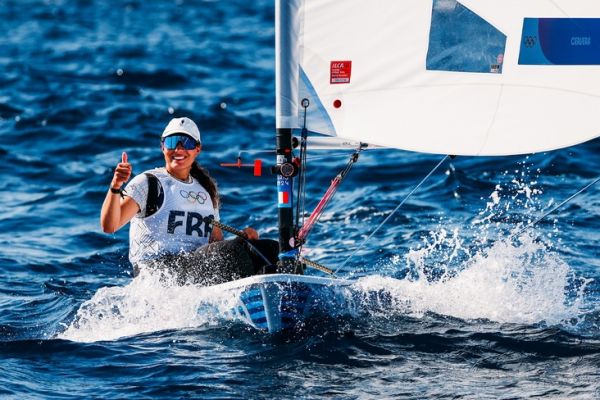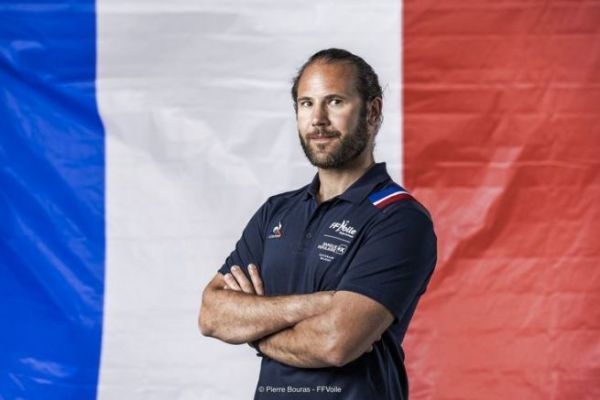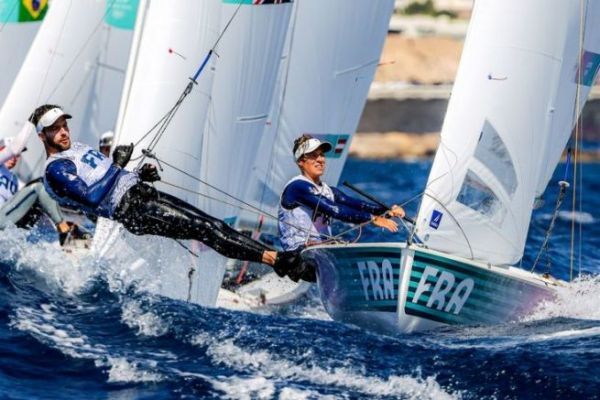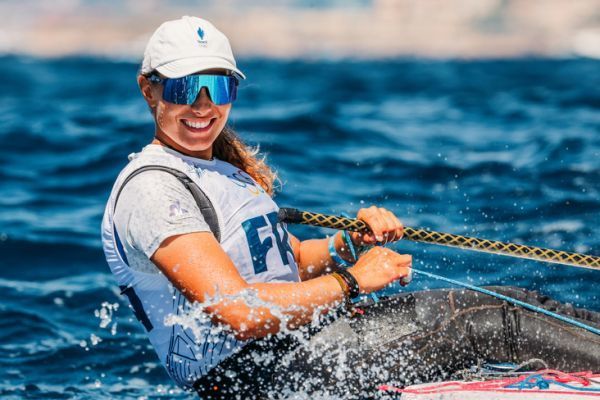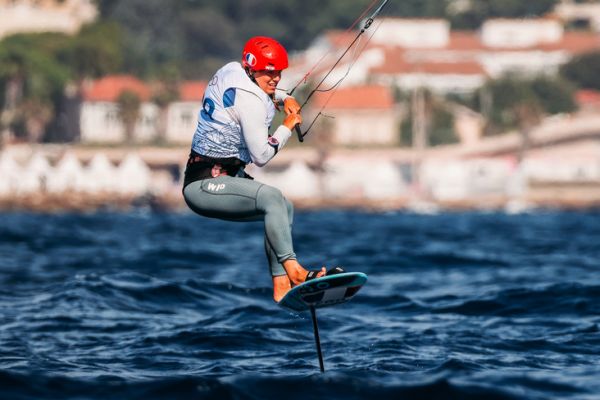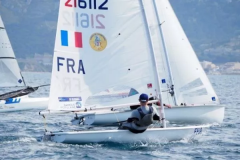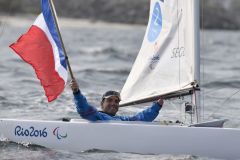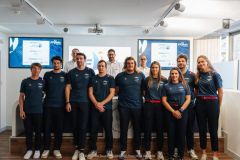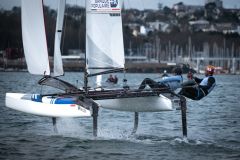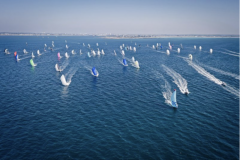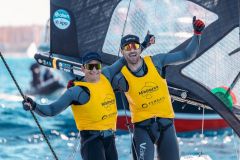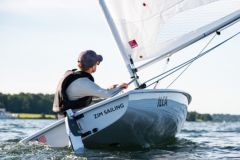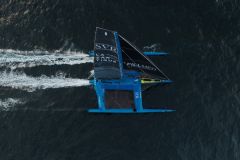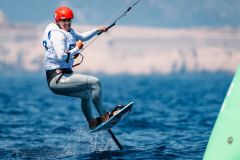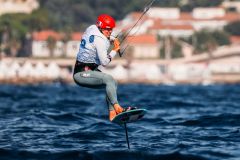Julien, tell us about your career. How did you join the French sailing team?
My practice is based in Pornichet. One of my patients was Julien Bontemps, a multi-medalist in RSX, whom I followed regularly. Shortly before the Rio Games in 2016, Julien called me to ask if I was available to lend a hand to the team for this Olympiad.
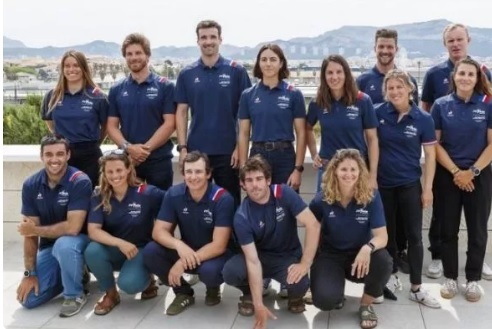
I was surprised, because I didn't sail competitively at all. My father had a boat, and I sailed a little, but not at a high level. Franck Citeau pushed me and encouraged me to go for it. The fact that I wasn't an experienced sailor wasn't a problem.
How do you monitor an athlete who travels the world to race?
I work on training blocks, courses and regattas. There are ten supports, so as many European and World championships, the Sof and various regattas on bodies of water spread across the four corners of the planet. So you can't be everywhere. When I started, there were 4 of us on the federation's payroll, along with other freelance physiotherapists.
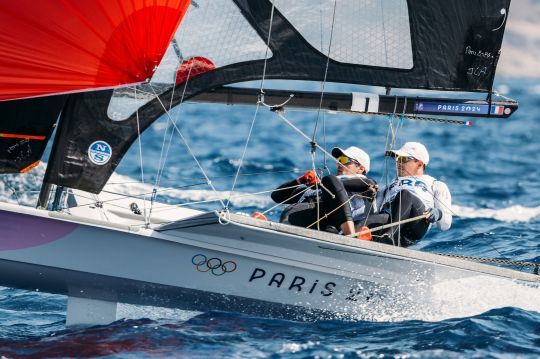
I work in tandem with Bertrand Guillo, who is also a physiotherapist. We also work closely with the French team manager and the doctor. Outside competitions, our athletes live all over the world, so to facilitate exchanges and processes, we have a platform on which everyone can enter any injuries or trauma they may have experienced during a session. This is obviously covered by medical secrecy, but the system enables the staf to keep precise track of an athlete.
What's your day-to-day role during an event?
In the morning, you do a muscular awakening, followed by a hydration process. This is followed by a physio follow-up and a series of treatments. I also take care of fitting straps and taping if necessary, as well as managing small items of equipment.
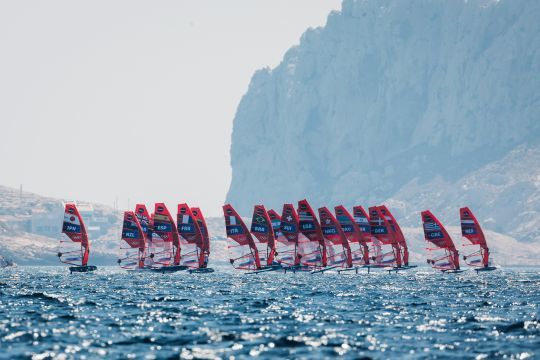
I also make sure they don't suffer too much from the heat, which can lead to serious complications.
How do you beat the heat when you're waiting in the sun for a round to start?
Beforehand, we prepared the athletes by following a heat protocol. This tool, integrated into the training schedule, was put in place before the Tokyo Games, during which everyone suffered a great deal from the heat. And sometimes malaise, vomiting and the beginnings of sunstroke.

The French team doctor, Nicolas Capony, is in charge of this process, during which athletes train by doing cardio in very hot conditions. The process helps the body acclimatize to running in hot conditions.
And once back on land?
Once back on land, we have a major recovery protocol, with an active phase on bikes or rowing machines. We then switch to cold baths, and eventually use tools such as presso boots, which promote lymphatic drainage. We also use Game Ready, a system that creates both pressure and cold on an area to be treated. All this speeds up the body's natural regeneration process.
Are some media more demanding than others for organizations?
No, the constraints are not the same. But each series brings its own set of complications. For example, the laser, which is very demanding when rappelling isometrically, will lead to tendonitis or muscle contractures. Conversely, babouinage (active abseiling) on a double dinghy requires a more explosive effort.
We're also adapting to the evolution of supports. The arrival of foils has propelled athletes to very high speeds.
Are athletes obliged to use your services?
No, it's all on request, in good understanding, nothing is imposed. It also has to do with the athlete's personality. Some are more used to receiving care than others. The aim is not to change the selected athlete's habits during a regatta.
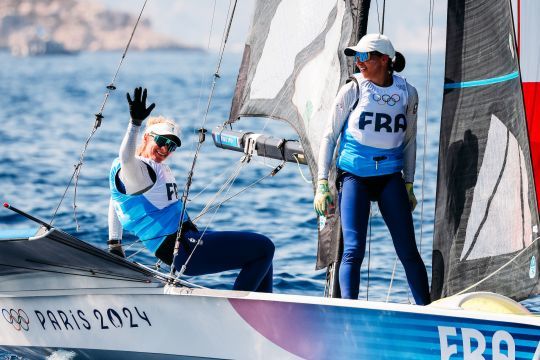

 /
/ 